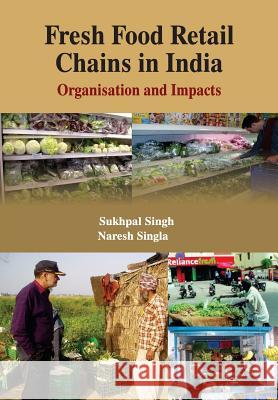Fresh Food Retail Chains in India: Organisation and Impacts (CMA Publication No. 238) » książka
Fresh Food Retail Chains in India: Organisation and Impacts (CMA Publication No. 238)
ISBN-13: 9788184246896 / Angielski / Miękka / 2016 / 292 str.
Food retail chains and supermarkets have emerged as important players in global food economy co-ordinating and controlling the sector in many countries including developing countries. In India too, the recent policy thrust on improving the food value chain management with the participation of the private corporate and multinational players has gained currency as part of the economic liberalization process in agricultural and food sector. Given this policy thrust on the expected and assumed role of FDI and supermarket food retail chains in improving the efficiency of the food sector in general, and perishable produce sector in particular, this book examines the issue with empirical evidence. It analyses the inclusiveness and the effectiveness of farmer linkage of these chains in perishable produce sector across states and vegetable crops based on an understanding of the organization of the chains and their farmer linkages. It attempts case studies based on interviews with chain managers, facilitators, and supplying farmers across chains and locations in Gujarat, Karnataka, and Punjab/Haryana which have had varying degrees of retail chain penetration in procurement and retail. It also examines the impact of modern food retail chains on traditional fruit and vegetable retailers of various types based on surveys in the cities of Ahmedabad, Bangalore and Chandigarh. The book also attempts case studies of alternative procurement and retail channels in India and makes policy and practical recommendations to leverage the modern retail chain players for small holder benefit and suggests mechanisms to protect the traditional retail interest.











